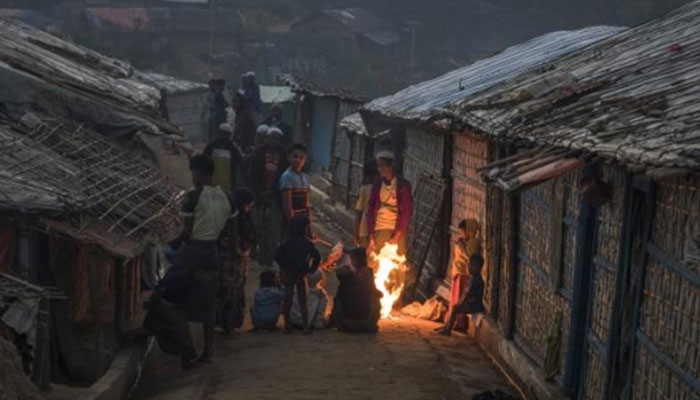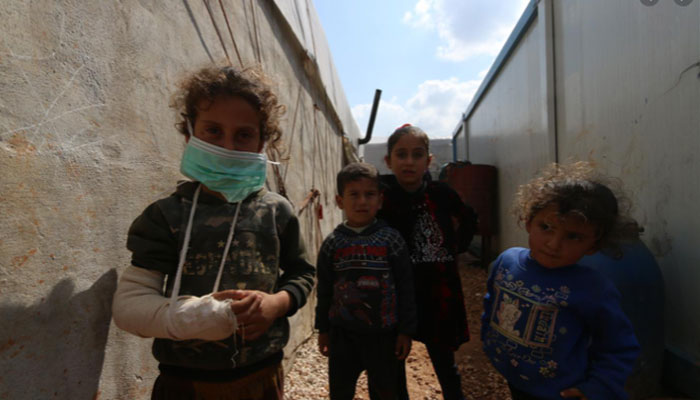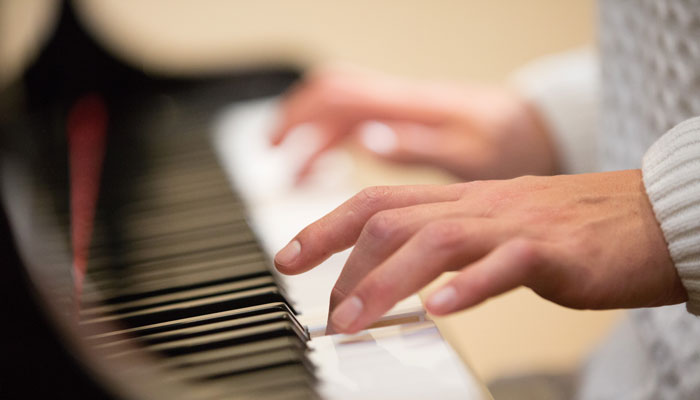As the size of the COVID19 crisis sets in, and the scale of the necessary intervention becomes clearer, there is only one metaphor that we are reaching for: war.

Metaphors vs reality: While leaders reference the language of war, many people like us now have to face this pandemic living in crowded camps, where social distancing is impossible, and access to soap and clean water desperately compromised. Image credit: Unicef.
Trump wants to be seen as a ‘war-time president’ and America is now on a ‘war-time footing’. Macron has declared war on the virus. Canadians need a ‘war-time mentality’, while in the UK, the idea of a ‘war-time coalition government’ has been proposed. Australia even has a 'war cabinet'.
Historians and sociologists tell us that war has been a key driving force in human civilisation. And that organised violence is a defining feature of the modern world. It’s how we turned ourselves into nation states.
The link between war and nationalist fervour is well researched: war produces a 'rally around the flag' effect, though the roots of this sentiment are in our everyday and ongoing validation of war as a putative means to greater ends.
Organised violence is a defining feature of the modern world. It’s how we turned ourselves into nation states.
Our language shows how present and ubiquitous war is in our thinking. War appears in the top 500 most frequent words in English. Coming in at number 438, it is higher in frequency than words like food, father, human and love.
It is one of our most “compounded” words: we have ‘war brides’ and ‘war babies’. We have ‘war poets’ and ‘war artists’. We have ‘war heros’ and ‘war crimes’. We have ‘war economy’, ‘war chest’, and of course, ‘war debt’.
War’s alterego, peace, trails along behind it – moving up and down in frequency as it does, but never with anything like the popularity of war.
And in the oft-repeated verse of Ecclesiastes 3, we find “a time for everything … a time to love and a time to hate, a time for war and a time for peace”.
'War' holds a mystical, masculine power. It invokes strength and courage, sacrifice and resolve, purpose and victory.
The true fight of our lives
We’ve had troops in the Middle East for nearly 20 years. We were ‘on the frontline' in Iraq, and we’ve been 'taking the fight to ISIS' in Syria.

Victims of war and now words: COVID-19 will kill thousands who fled their homes to avoid death by war. Let’s not add insult to injury by continuing to mythologise war, says Lukin.
But these wars were always optional. While we are trying to track every single death due to this virus, our invasion of Iraq apparently came with the luxury of refusing to tally 'body counts'. Deaths by violence in Iraq since that invasion are on their way to reaching 300,000.
In the face of this pandemic, the UN Chief Guterres is now trying to declare peace. As he says, COVID-19 is the true fight of our lives.
So as we glory in, and take comfort from, the metaphor of war, remember what its reality brings. Thanks to our love of war, many people like us – estimates are 70 million have been displaced by violence – now have to face this pandemic with little basic health or housing infrastructure.
People like us live in crowded camps, where social distancing will be impossible.
Thanks to our readiness to follow the US into Iraq and Syria, and our willingness to support despotic regimes, people like us live in crowded camps, where social distancing will be impossible, and access to soap and clean water desperately compromised.
COVID-19 will kill thousands who fled their homes to avoid death by war. Let’s not add insult to injury by continuing to mythologise war.
In the new kind of coming together that this virus is forcing on us, it’s time to put away the dangerous book for boys, and to turn away from one of our most beloved sources of strength, courage and inspiration.
We must give birth to new metaphors of unity and commonwealth. We might save even more lives than this deadly virus looks set to take away.
Annabelle Lukin is Associate Professor in the Department of Linguistics.



